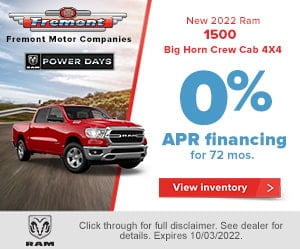Automotive Industry is Healthy
Tom Libby, Loyalty Principal at IHS Markit gives a talk at the recent Digital Dealer Conference and Expo and describes the automotive industry as healthy.
Every year, hundreds of dealership employees head to the Digital Dealer Conference and Expo to gain industry insights and build knowledge. With over 121 sessions, there’s always new information to learn.
One of those sessions was by Tom Libby on U.S. New Vehicle Industry Trends and Challenges Going Forward includes data and analysis from new vehicle registrations throughout the United States.
Despite current challenges and what the media may say, Tom says, the automotive industry is doing very well at the moment.
Future of the industry by vehicle type
There are several factors that could affect the industry spread as far as the spread of vehicle type. Fuel price is one of those factors. Fuel prices are currently low, however, as fuel prices increase, pickup truck and full-size vehicle sales go down. Mid-size vehicles and sedan sales go up.
Libby also talks about brand diversification and what will happen when fuel prices do increase. He looks at how each brand is diversified enough in vehicle types. Ford, General Motors and FCA all seem pretty well-diversified with a good range of pickup trucks, full-size vehicles, SUV’s, and compact SUV’s too. Domestic brands are in good shape right now. However, if fuel prices increase, Toyota and Volkswagen are prepared, with vehicle types predominantly being cars, sedans, and small SUVs.
Electric vehicle market
EV market share has more than doubled in one year (not including hybrids) but it is still only 1.4% of the total market share across the U.S. 46% of EV’s are registered in California and just over 2% in Colorado. Hybrids represent 2.3% of the market share.
2019 is expected to have 3 new EV vehicle launches, however, 2020 shows 13 more EVs and 2021 currently shows a boom with 20 more new EV’s to be launched.
Gasoline vehicles are down slightly but still represent 86.7% of the market.
Costs associated with developing electric and autonomous vehicles are extremely high for manufacturers, as they continue to develop vehicles for now, but also for the future. Manufacturers are aware of this and race to be the first in what may be the future of the entire industry. Manufacturers are making alliances to reduce costs. Ford has teamed up with Rivian, and also Volkswagen, General Motors with Honda, and FCA with Waymo.
Statistics show that being the leader or the first in a segment, results in leading that segment. For example, the Toyota Prius was the first success in hybrid vehicle technology and is now the market leader. The Mustang and RAV4 are other examples of this.
Successful brands in branding
Several manufacturers are dominating when it comes to branding and gaining much success. Jeep is one of those. The market share for Jeep has doubled since 2009. RAM Trucks are also “This is an extraordinary success story…there has been a major change just now in the full-size pickup category.
For decades the F-series was number one and the Silverado was number 2. That’s no longer the case, the RAM is now number 2″ says Libby. He believes this success is in branding. Another reason is due to keeping the Classic RAM 1500 available at a lower price whilst also bringing out the all-new 2019 RAM 1500 with great technology features such as the 12″ touch screen along with a new exterior design that stands out.
Lander Rover, Porsche, Tesla, and Subaru are also doing well in terms of branding.
Thank you to Digital Dealer Conference and Expo and Tom Libby at IHS Markit.



Recent Comments